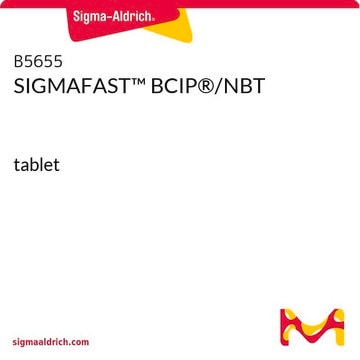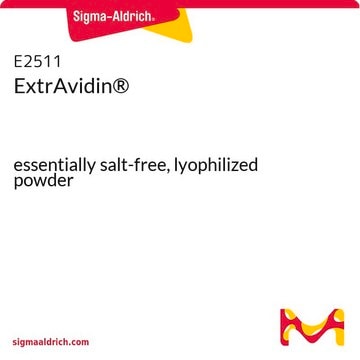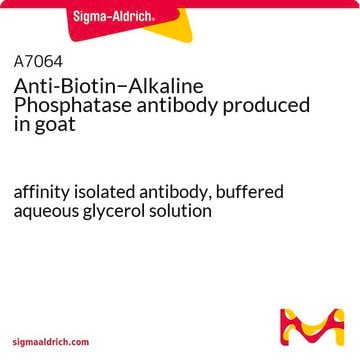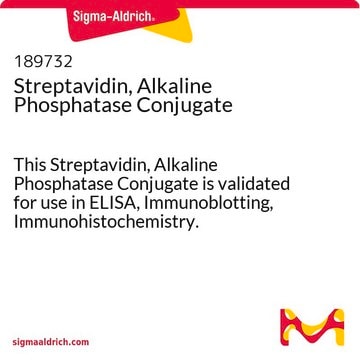E2636
ExtrAvidin® –Alkaline Phosphatase
buffered aqueous solution
Synonym(s):
Alkaline Phosphatase Reagent, ExtrAvidin Alkaline Phosphatase
About This Item
Recommended Products
conjugate
alkaline phosphatase conjugate
form
buffered aqueous solution
technique(s)
dot blot: 1:300,000
immunohistochemistry (formalin-fixed, paraffin-embedded sections): 1:100 using human tissues sections
indirect ELISA: 1:60,000
shipped in
wet ice
storage temp.
2-8°C
Looking for similar products? Visit Product Comparison Guide
General description
Application
- Dot blot
- Immunohistochemistry (formalin-fixed, paraffin-embedded sections)
- Indirect ELISA
- Enzyme linked immunosorbent assay (ELISA)
- Enzyme-linked immunosorbent spot (ELISPOT) analysis
- Competitive ELISA
Biochem/physiol Actions
Physical form
Preparation Note
Legal Information
Disclaimer
Storage Class Code
12 - Non Combustible Liquids
WGK
WGK 2
Flash Point(F)
Not applicable
Flash Point(C)
Not applicable
Certificates of Analysis (COA)
Search for Certificates of Analysis (COA) by entering the products Lot/Batch Number. Lot and Batch Numbers can be found on a product’s label following the words ‘Lot’ or ‘Batch’.
Already Own This Product?
Find documentation for the products that you have recently purchased in the Document Library.
Customers Also Viewed
Articles
ELISpot assay provides qualitative and quantitative information on immune responses, visualizing multiple secretory products from single responding cells.
ELISpot assay provides qualitative and quantitative information on immune responses, visualizing multiple secretory products from single responding cells.
ELISpot assay provides qualitative and quantitative information on immune responses, visualizing multiple secretory products from single responding cells.
ELISpot assay provides qualitative and quantitative information on immune responses, visualizing multiple secretory products from single responding cells.
Protocols
Use this protocol to for the entire immunohistochemistry (IHC) procedure through staining and visualization of specific antigens in paraffin-embedded tissue sections.
Use this protocol to for the entire immunohistochemistry (IHC) procedure through staining and visualization of specific antigens in paraffin-embedded tissue sections.
Use this protocol to for the entire immunohistochemistry (IHC) procedure through staining and visualization of specific antigens in paraffin-embedded tissue sections.
Use this protocol to for the entire immunohistochemistry (IHC) procedure through staining and visualization of specific antigens in paraffin-embedded tissue sections.
Our team of scientists has experience in all areas of research including Life Science, Material Science, Chemical Synthesis, Chromatography, Analytical and many others.
Contact Technical Service












